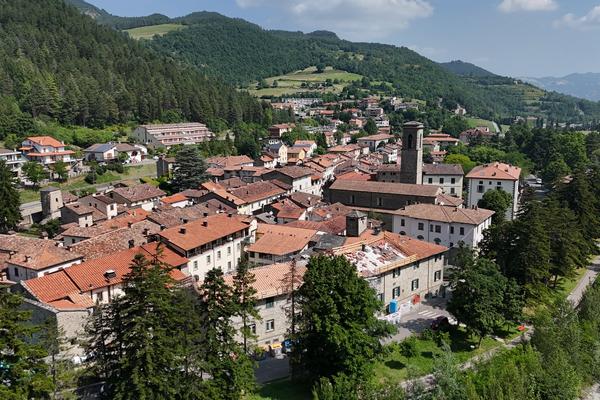
Bagno di Romagna, a municipality included in the list of the Most Beautiful Villages in Italy, is located in the Tuscan-Romagna Apennines, within the National Park of the Casentino Forests which includes the Sasso Fratino Integral Reserve, a UNESCO World Heritage Site. (read more)
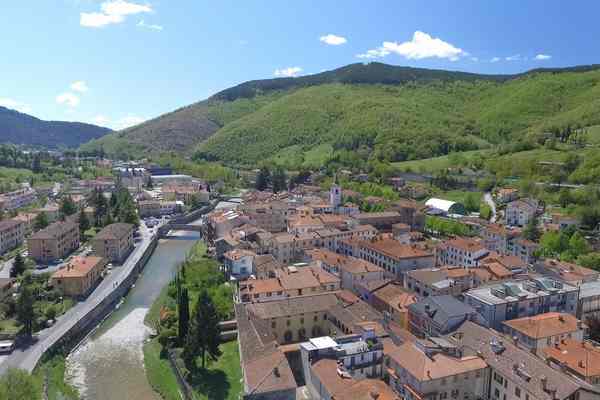
The medieval village in Valtiberina that was dear to Lorenzo the Magnificent, also known as the "Diary City" (read more)
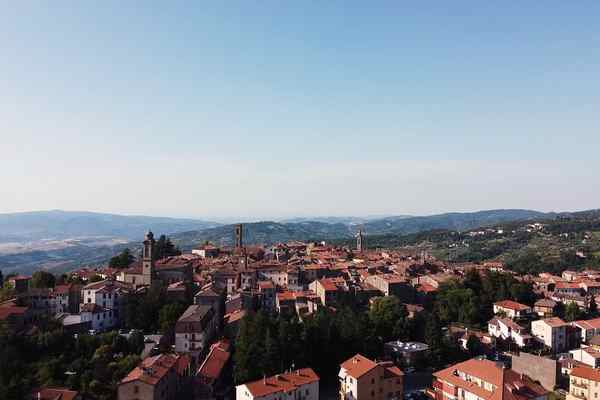
Castel del Piano is a charming town located on the slopes of Mount Amiata, in the province of Grosseto, Tuscany. (read more)
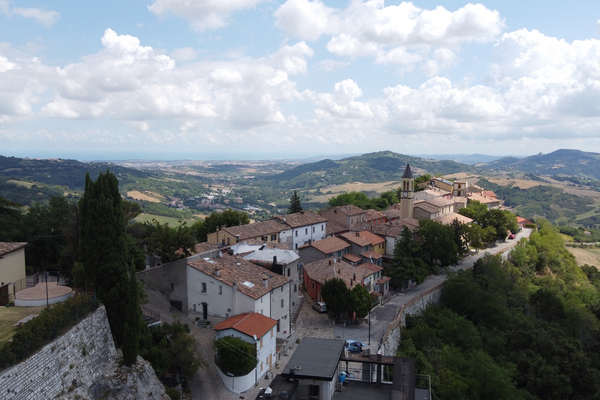
Sassofeltrio stands atop a rocky chalk spur not far from the central part of the Conca Valley. Protected by a defensive wall, it offers wonderful panoramic views over a vast, sun-filled valley. The old town centre features a characteristic group of houses, divided longitudinally by a single main road. It is still surrounded by imposing fortified walls that bear witness to its mediaeval origins. (read more)
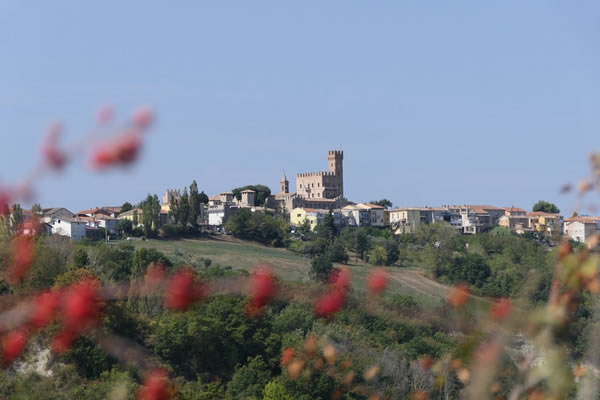
Founded in the Middle Ages, it belonged to the Malatesta family, becoming, during the 15th century, the object of a long dispute between them and the noble Montefeltro family. (read more)
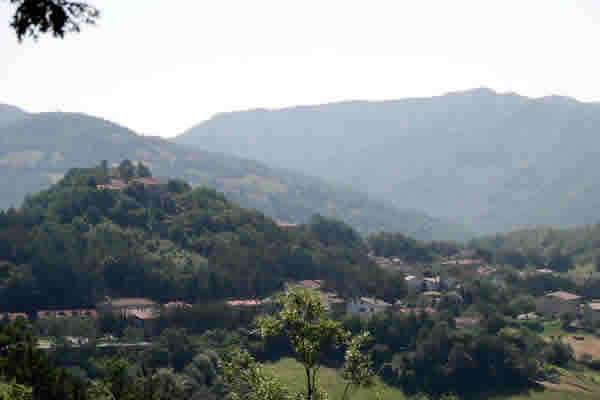
The village of Badia Tedalda sits at the crossroads between three regions: Tuscany, Romagna and Marche, along the route of the Via Romea that was traveled over the centuries by monks, pilgrims and travelers. (read more)
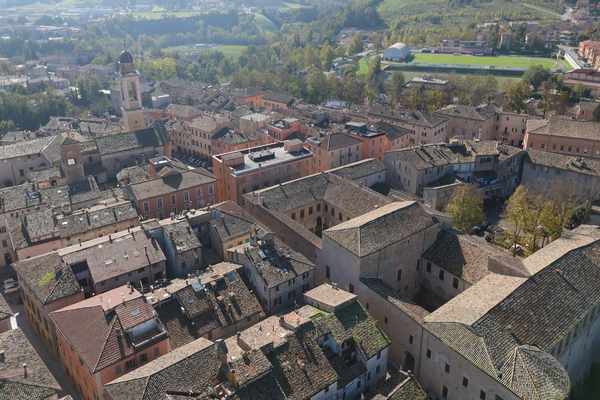
Urbania, located in the Upper Metauro Valley, is a charming village in the Marche region that combines a rich history, an important artistic heritage and a centuries-old artisan tradition. (read more)
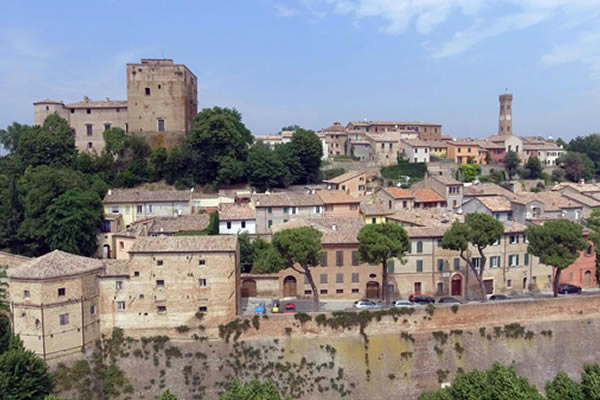
The ancient medieval village is located on the Via Emilia 10 km north of Rimini and 20 km south of Cesena. In a straight line with the sea you can reach the beaches of Rimini Nord and Bellaria Igea Marina, which is 13 km away. (read more)
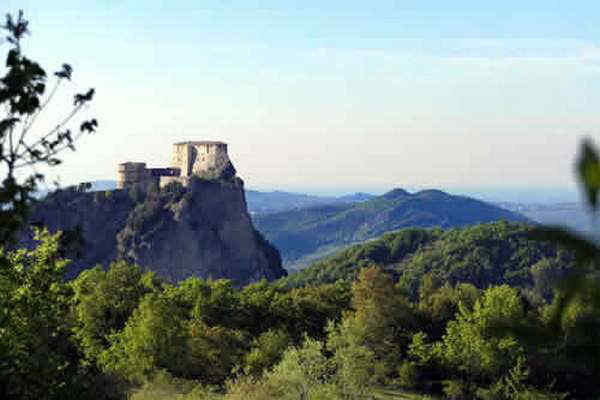
San Leo, a wonderful capital of art, mentioned by Dante Alighieri in the Divine Comedy, is the fulcrum of the historical region of Montefeltro and is the city that gave it its name. Known for its historical and geopolitical events, location for films and documentaries, tourist destination of excellence, it is the precious pearl guarded by the province of Rimini. (read more)
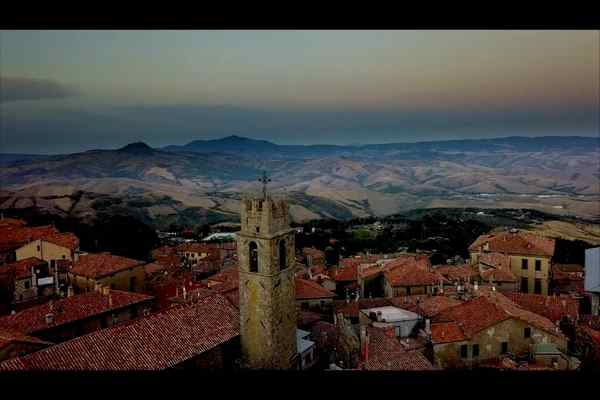
Piancastagnaio is an ancient and charming medieval village located on the southern slope of Monte Amiata, in the province of Siena, on the border with Umbria and Lazio. (read more)
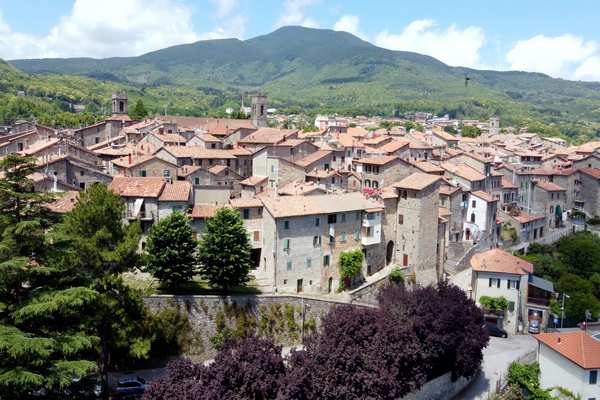
Abbadia San Salvatore is a destination that combines a thousand-year history, fascinating traditions and lush nature, offering an authentic and evocative experience in the heart of Tuscany. (read more)
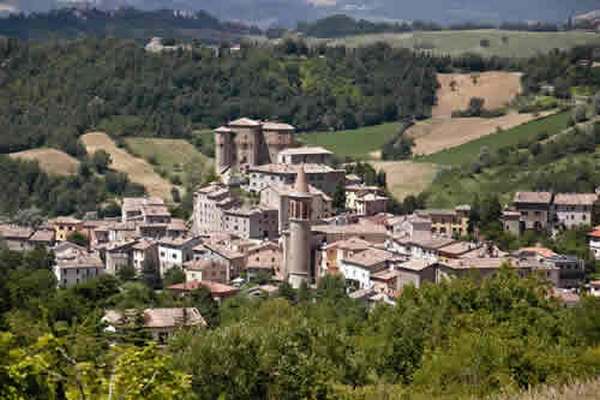
Sant'Agata is a splendid ancient town, well preserved, with different buildings of notable historic value; it is best to visit this town from spring to autumn when the weather is nice.Legends and an idyllic setting - with a castle that looks like it came straight out of a fairytale - make this town one of the most characteristic in the Montefeltro area, thanks also to its wonderful cultural, natural, spiritual and gastronomic itineraries. (read more)
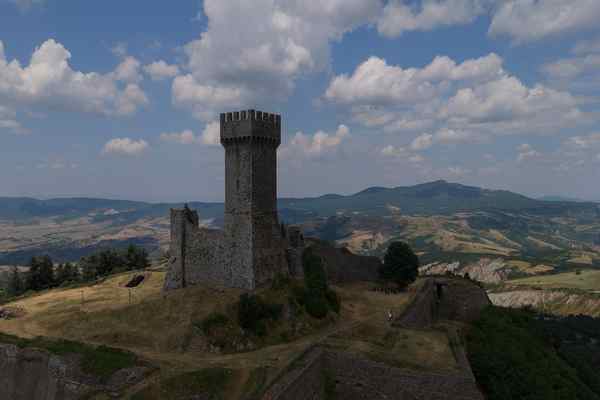
Radicofani is part of the beautiful Val d'Orcia, recognized as a UNESCO World Heritage Site. (read more)
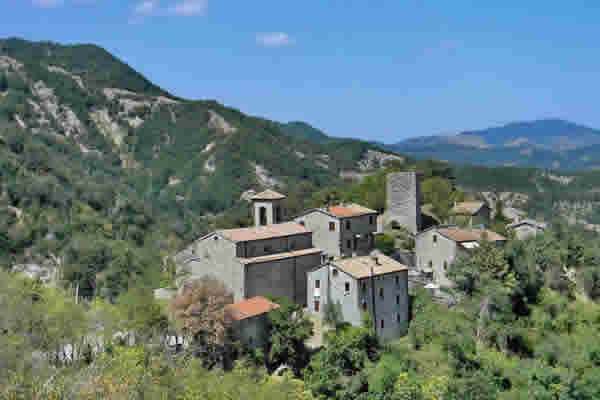
Casteldelci stands out thanks to its natural beauty and is often referred to as the “green sea”. It is the hilliest in the province, rising to 1,355 metres above sea level, making it the ideal destination for those who love nature walks. (read more)
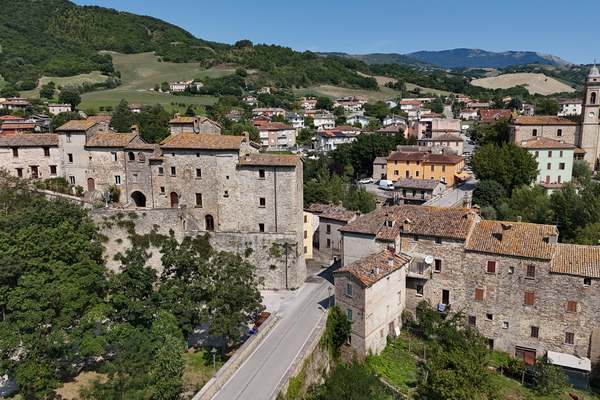
Belforte all'Isauro is a charming medieval village perched on a spur of rock between the Isauro and Fossato streams, the town overlooks the upper valley of the Foglia river, on the border between Marche and Tuscany. (read more)
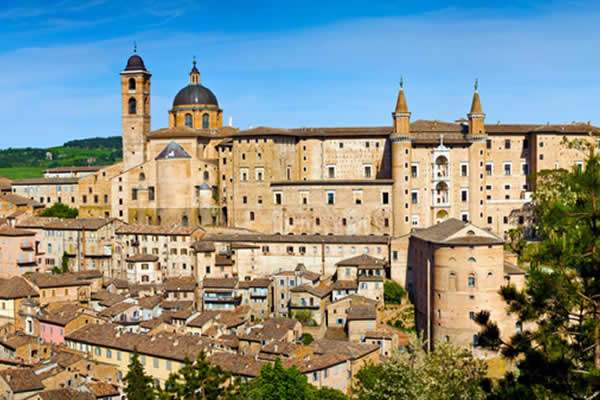
Urbino, located in the Marche region, is one of the most important and fascinating cities of the Italian Renaissance. Its historic center has been declared a World Heritage Site by UNESCO. (read more)
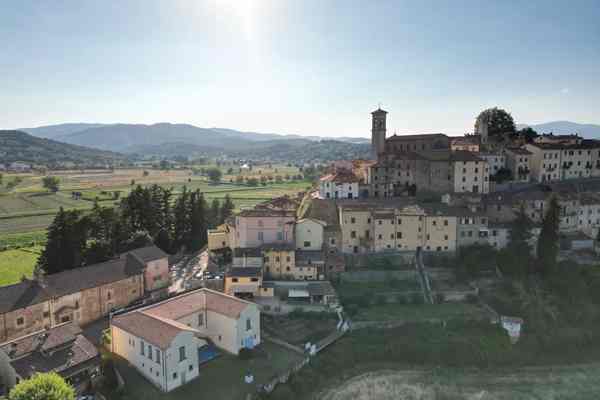
The village of Monterchi perches proudly in the hills of the Tevere Valley, not far from the Citta di Castello and Umbria, surrounded by medieval parish churches and convents. (read more)
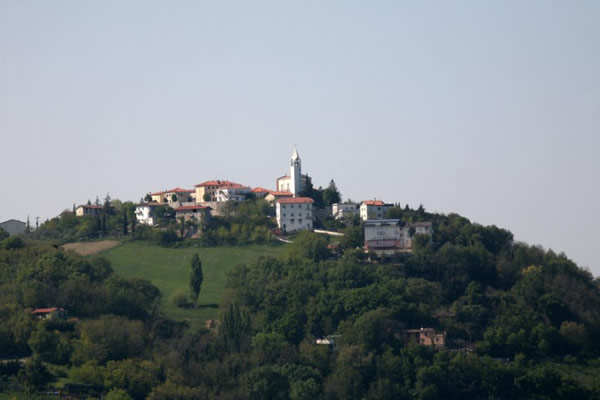
Gemmano is in the middle Conca Valley, on the top of a hill surrounded by the countryside. From one side, the town overlooks the entire plain down to the sea, while the other side offers views of the hills and mountains within the old Duchy of Urbino. The surrounding countryside is largely unspoiled and rather unusual with its luxurious wild vegetation mixed in with the cultivated fields, offering a different view around each corner. (read more)
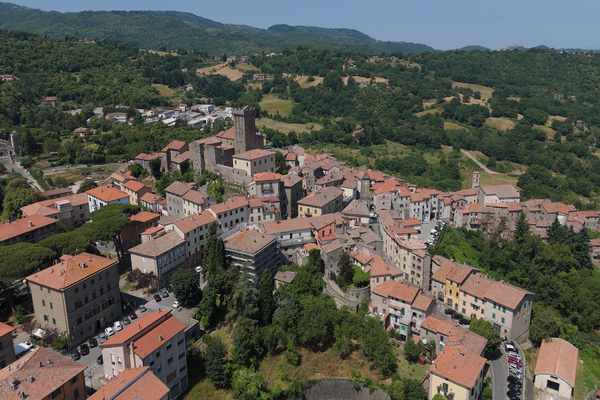
Arcidosso is a charming medieval village located on the western slopes of Mount Amiata, in the province of Grosseto, Tuscany. (read more)
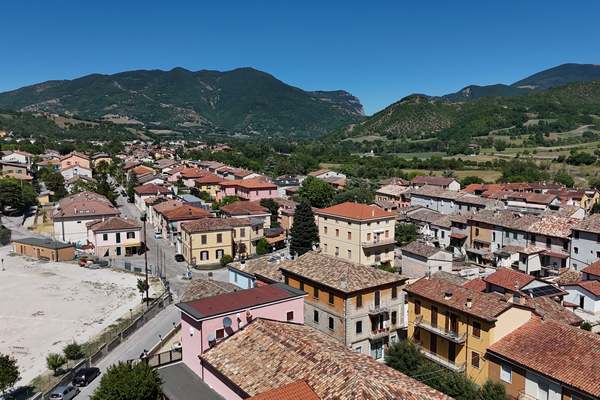
Acqualagna is universally known as the "Capital of the Truffle", which is found here in abundance in all its varieties. (read more)
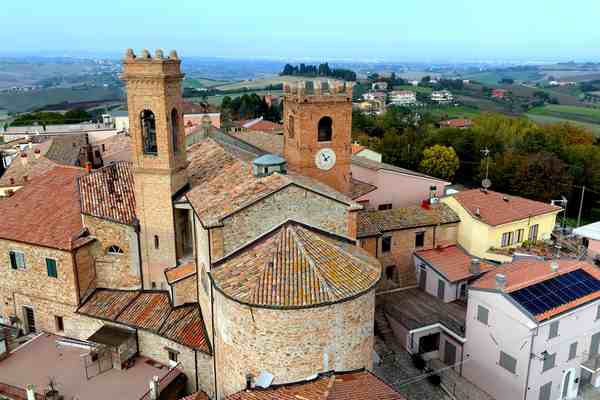
San Clemente is a small village overlooking the Conca valley, surrounded by grape and olive groves. Its walls, dating back to the late 1300s, are still partly visible. (read more)
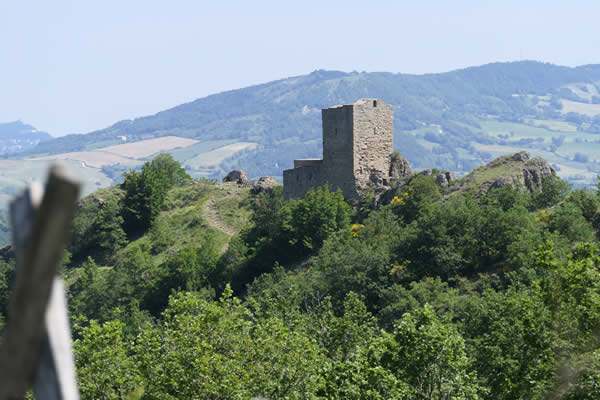
Pietrarubbia is a small town in the province of Pesaro and Urbino, in the Marche region. It is located in a rather isolated position, about 500 meters above sea level, on the border with Emilia-Romagna and the Republic of San Marino, and is part of the Montefeltro Mountain Community. (read more)
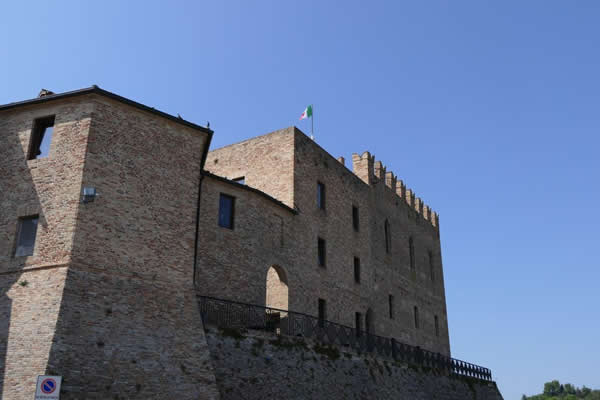
Situated 15 kilometres far from Riccione and Cattolica, Mondaino is perched on the crest which divides the valleys of the rivers Tavollo and Foglia, and the regions of Romagna and Marche. (read more)
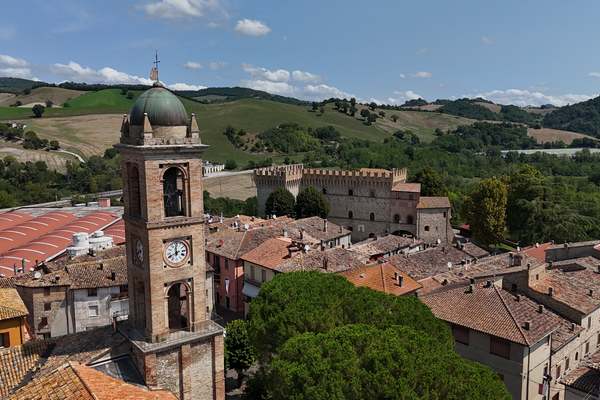
Piandimeleto is a charming town in the province of Pesaro and Urbino, located in the upper valley of the Foglia river, in the heart of Montefeltro. (read more)
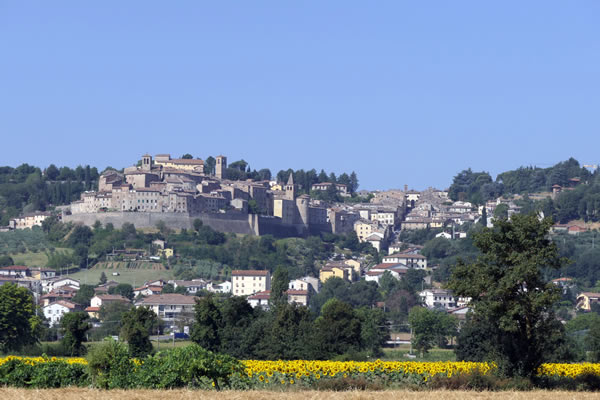
Anghiari is a little medieval town deep in the magnificent Tuscan countryside, a few kilometres from Arezzo in the Tuscan Valtiberina. Anghiari played a vital role in the Middle Ages due to its strategic position.It was the Battle of Anghiari on 29 June 1440 that cemented Tuscany's borders, with the Florentines triumphing over the Milanese, allowing Florence to assume governance over the city.A painting of this battle, now sadly lost somewhere behind the walls of the Palazzo Vecchio in Florence, allowed Leonardo da Vinci to cement his fame. Anghiari is one of the most beautiful medieval towns in Italy, and was
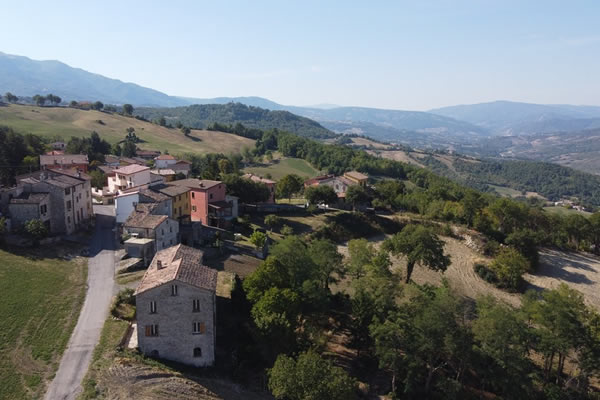
The curious and fascinating fortress known as Maioletto is easy to spot from even the most isolated part of the valley. It stands on a “raft” of rock that separates it from the land below.The current village however is not visible as it is located nearby, in a place called Serra; it replaced and inherited the name of the ancient castle destroyed one night in the 18th century under a terrible landslide. This was preceded by 40 hours of uninterrupted rain. (read more)
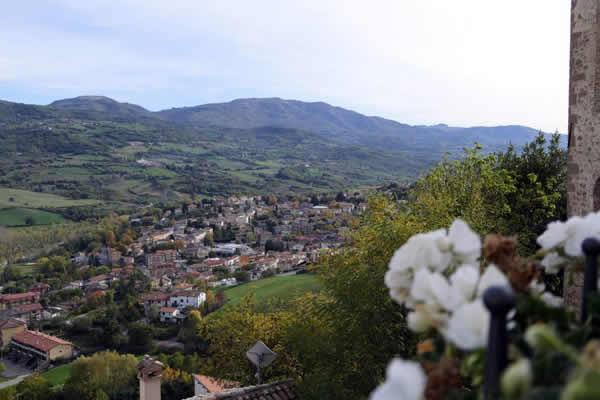
In the heart of the mid-Marecchia valley, in a largely flat area, this is a fairly new municipality that was established in 1907 and is now one of its main commercial and industrial towns. (read more)
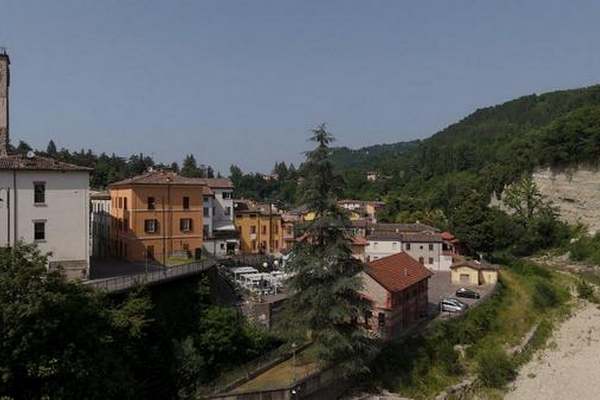
Mercato Saraceno is an interesting destination for those looking for a mix of history, culture, food and wine and outdoor activities. (read more)
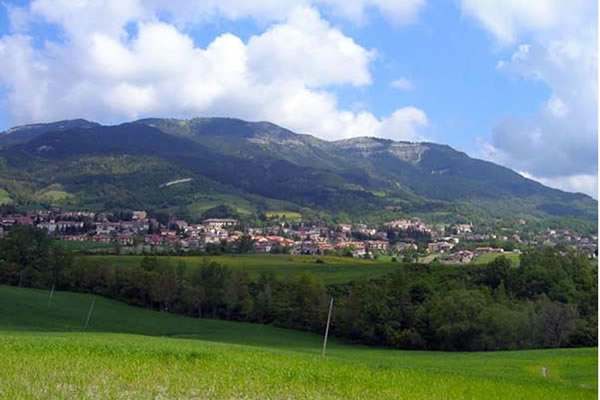
Lying on the coast of the homonymous Mount, immersed in the green of its beech forests, Carpegna is the center of the historical region of Montefeltro.The historical and artistic heart of the town is the Palazzo dei Principi, designed by the Roman architect Antonio de Rossi and built in 1675 on commission of Cardinal Gaspare di Carpegna. Carpegna is part of the territory of the Sasso Simone and Simoncello Regional Natural Park, of which it is the capital.
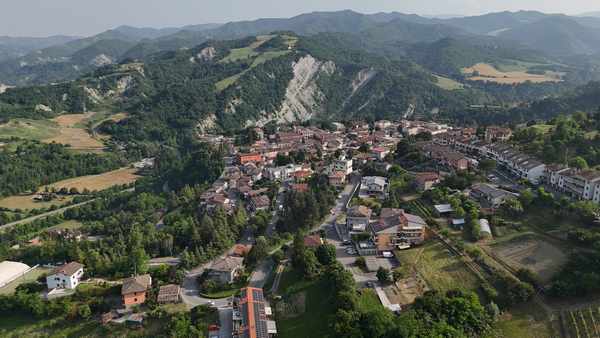
Sarsina is a place that combines ancient history, spirituality and culture, making it an interesting destination for tourists. (read more)
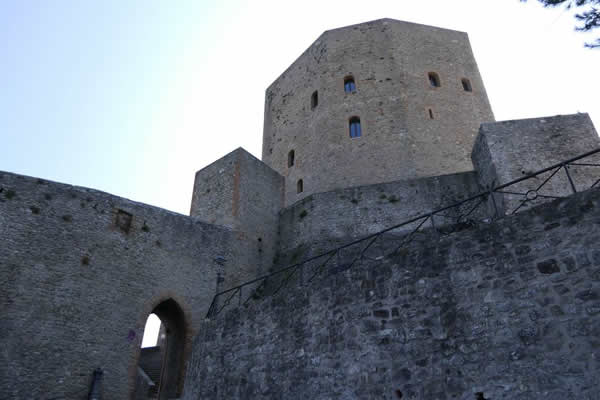
By straining ones eyes on a clear day it is possible to discern from the coast a solitary giant immersed in the greenery of the territory of the Malatesta Seignory: this is the Malatesta Castle of Montefiore, the defensive bastion and summer home of the noble family. (read more)
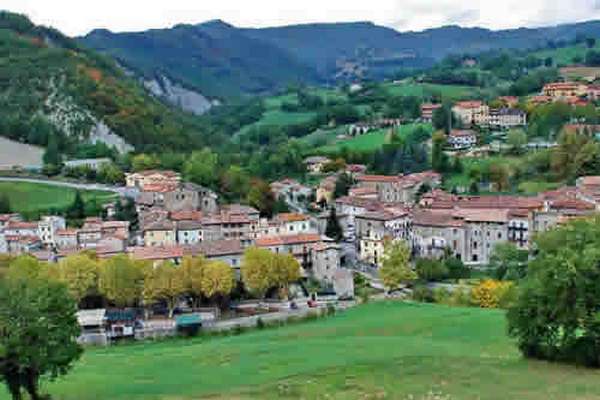
Sestino is a border land and, like all areas that are located at the crossroads of different cultures, is nowadays the result of the history, traditions and customs of the peoples who have passed through here over the centuries. (read more)
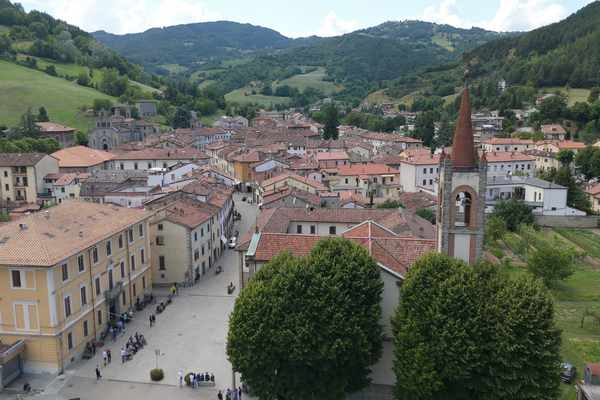
San Piero in Bagno is located in the valley floor of the Savio river. Built in the thirteenth century, San Piero in Bagno developed during the Florentine domination. (read more)
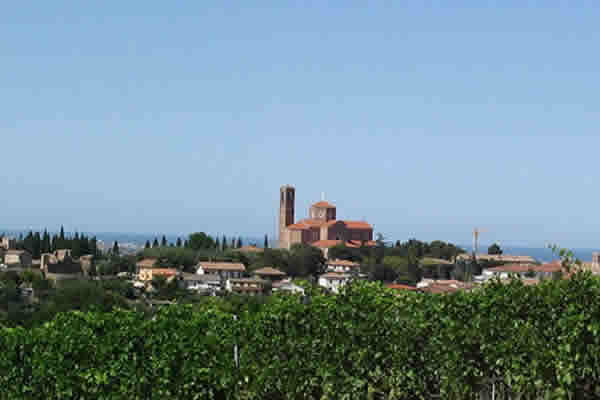
A few kilometres from San Marino and Riccione, the territory of Coriano offers the tranquillity of an inland town. It has ancient origins and was certainly dominated by the Umbrians, the Etruscans and the Romans. (read more)
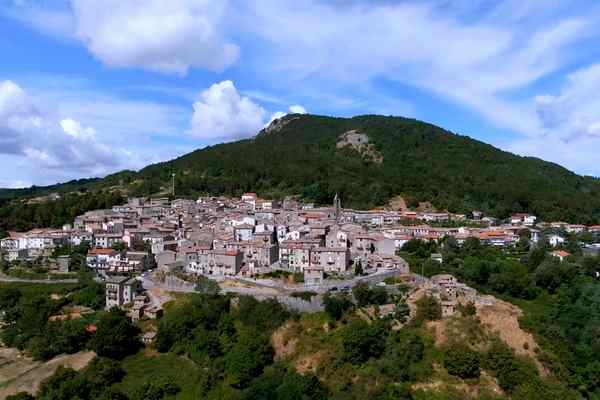
Castell'Azzara is an Italian town located in Tuscany, near Mount Amiata. (read more)

A centre for markets and fairs and reference point for farmers and artisans over a vast area, once a territory of the Malatesta Seignory. (read more)
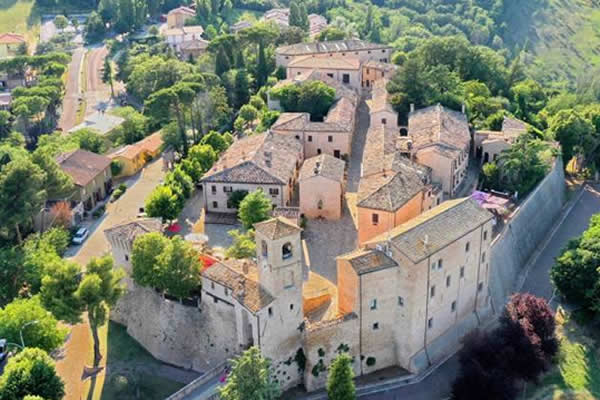
The Malatesta defended their Seignory by means of a series of fortresses close to one another keeping watch over the bordering lands of the hostile Duchy of Urbino.Montegridolfo guards the ridge which separates the Conca valley, on the Romagna side, from the Foglia valley in Le Marche. (read more)
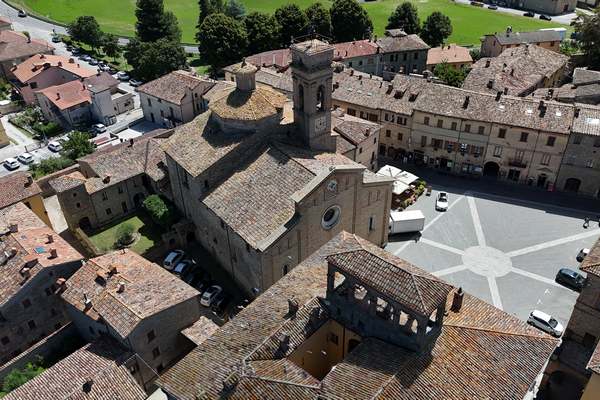
Mercatello sul Metauro is a picturesque town in the province of Pesaro and Urbino, in the Marche region, recognized as one of the "Most Beautiful Villages in Italy" and awarded with the Orange Flag of the Italian Touring Club. (read more)
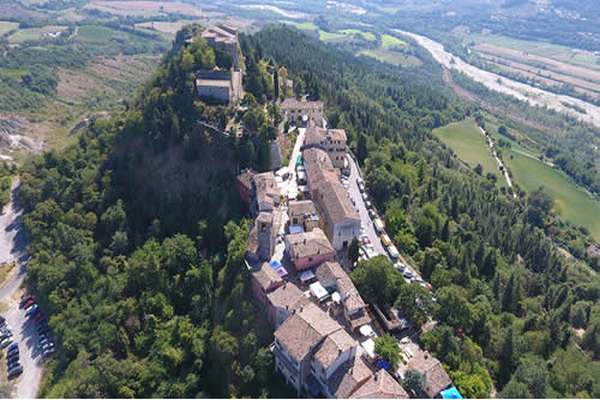
On 1 January 2014 this municipality was created from the merger of Poggio Berni and Torriana. The town once belonged to the territory of the Malatesta Seignory.The territory of Poggio Berni, partly situated on three small hills which are the continuation of the hill of Santarcangelo, has a distinguishing feature: the variety of historic buildings dotted around the countryside. (read more)
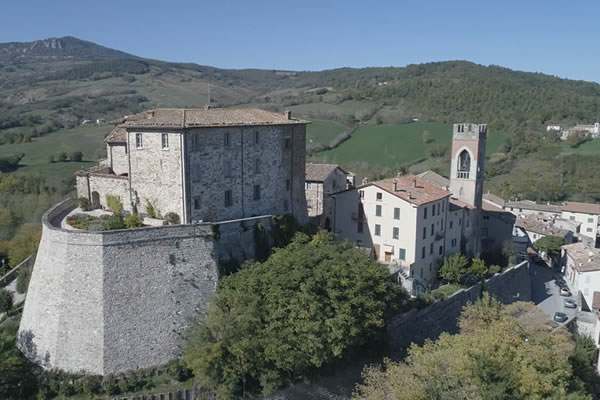
Monte Cerignone rises at the beginning of the upper Conca valley, on a rocky spur, at the foot of Monte Faggiola. (read more)
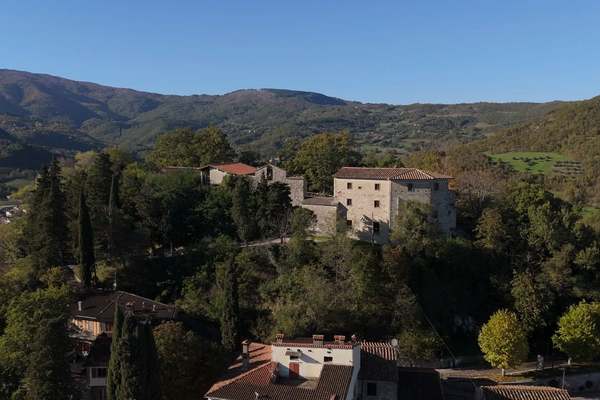
The village is made up of a castle located on the top of a hill, around which a small village has developed. (read more)
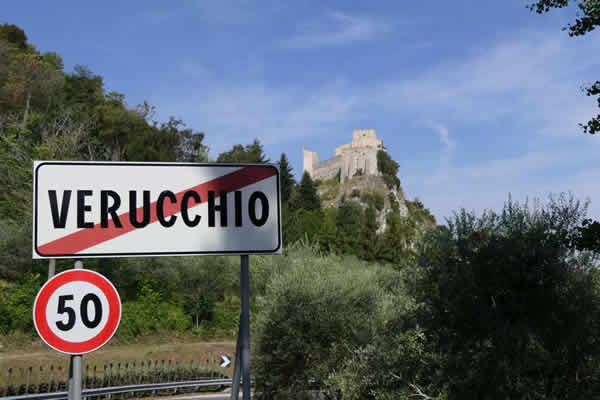
Boasting an Orange Touring Flag since 2005, Verucchio has managed to keep all its charm and its dual nature as both the town that was the cradle of the Malatesta family and many centuries earlier, the centre of Villanovan civilization. Added to this is the beauty of the landscape in the Marecchia River Valley in which it stands, making a visit to this ancient town a must when in Romagna. (read more)
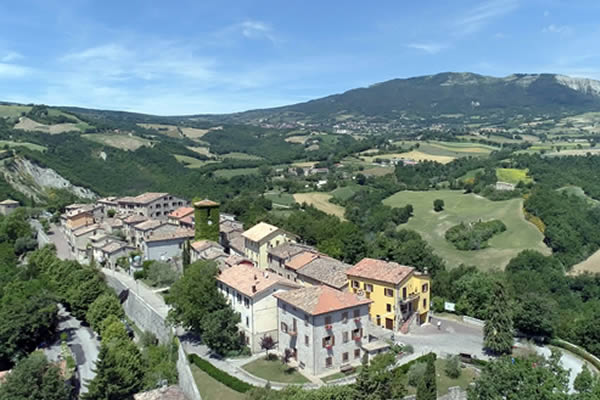
Situated in the Marche area, Frontino is a small and historic village. It received the Italian Touring Club's "Orange Flag" for its tourist-environmental qualities. (read more)
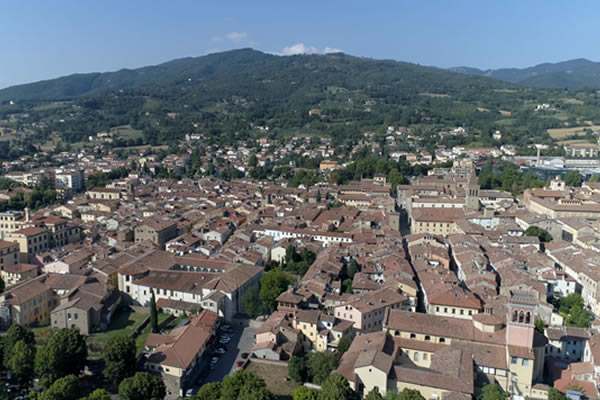
Located at the foot of the last stretch of the Tuscan Apennines, Sansepolcro dominates the Vatiberina. It opens into a vast mountain and hilly amphitheater bordered by Alpe della Luna, Massa Trabaria, the hills of neighboring Umbria, the Aretino and the 'Alpe di Catenaia.the historic center is a real jewel that has preserved its traditional features up to the present day. Sansepolcro is inextricably linked to the great Piero della Francesca.The artist, who used the name Pietro dal Borgo, immortalized Sansepolcro in many of his works, enhancing its typical features.
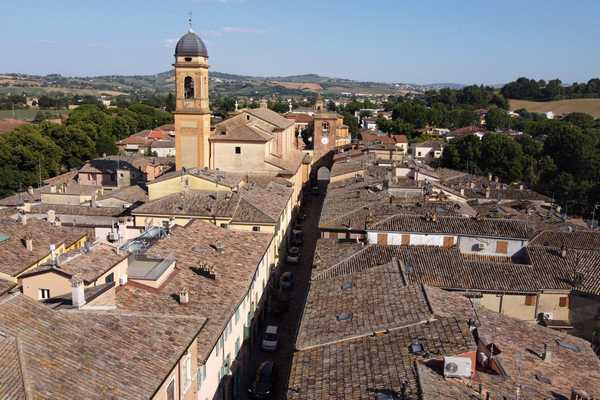
Ancient fortifications still remaining and the very layout of the town are indicators of how important the place was in the age of the Seignory of Malatesta. (read more)
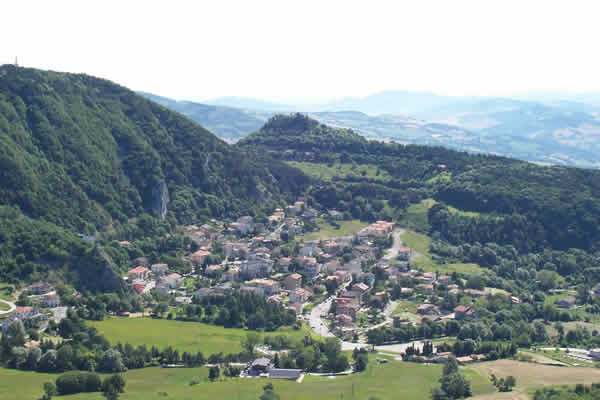
The Municipality of Montecopiolo is surrounded by peaks that slope down to the sea. In ancient times it was home to a beautiful castle of which there are evident traces currently being recovered and enhanced. Precisely from this castle originated, in the thirteenth century, the Counts of Montefeltro, who later became the Dukes of Urbino. (read more)
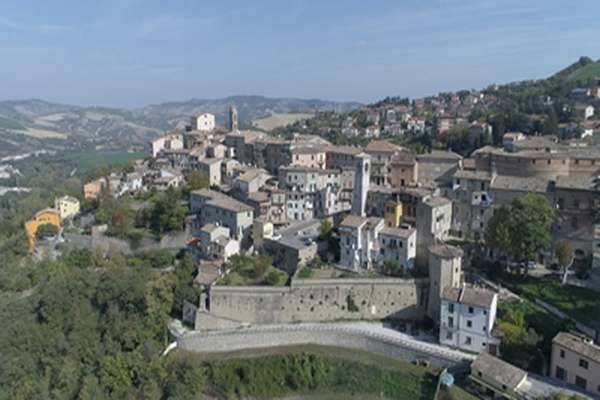
Sassocorvaro is a charming historic village located in the province of Pesaro and Urbino, in the Marche region. Located on a hill overlooking the valley of the Foglia river and the suggestive artificial lake of Mercatale, it offers a breathtaking panoramic view of the surrounding hills. (read more)
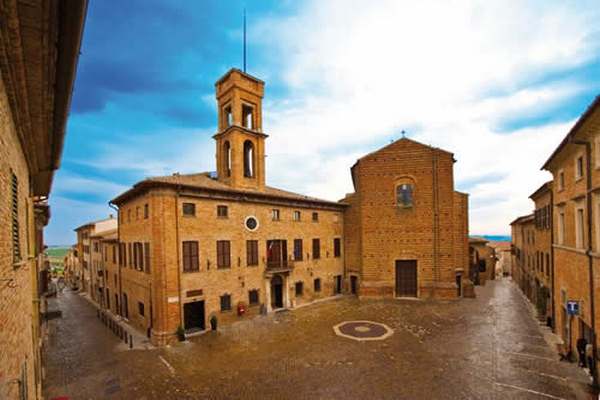
Mondavio is a beautiful medieval and Renaissance village located on the rolling hills of the province of Pesaro and Urbino, in the Marche region. Recognized as an "Orange Flag" by the Italian Touring Club and included among the "Most Beautiful Villages in Italy", Mondavio is a small jewel that preserves its historical charm intact. (read more)
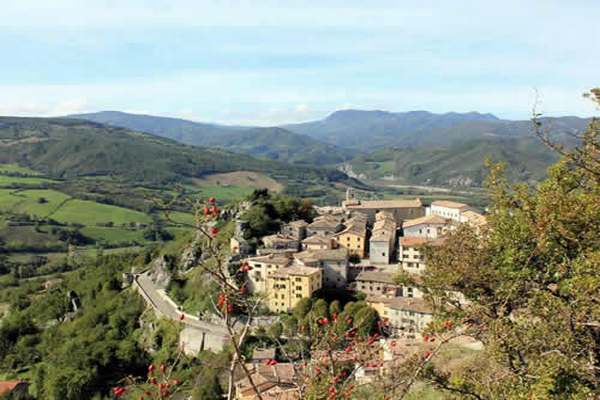
This town in the high Marecchia Valley is located along the western side of Carpegna Mountain, which slopes down towards the Marecchia River, and is easy to get to from the Rimini coast.This renowned environmental and cultural center of tourism, sung about by Tonino Guerra, is home to numerous beautiful places, as most of its territory is within the grounds of the Sasso Simone and Simoncello Natural Park; this is a great area for taking relaxing walks in the lush Apennines. (read more)
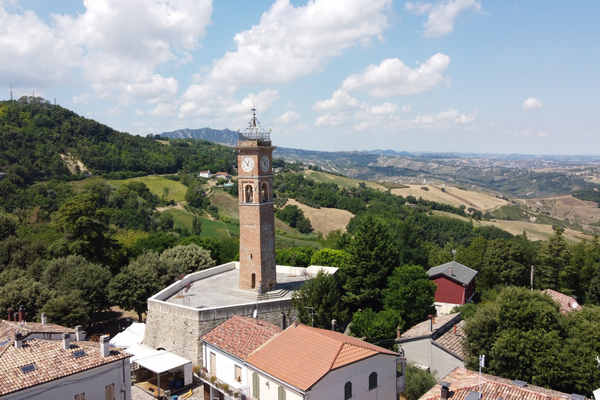
Situated in the Conca Valley, Montescudo-Montecolombo is a town of the Malatesta Seignory. It is located on a ridge which divides the plain around Rimini from the road which leads to the foothills of the Apennines, and which was a strategic point from which to survey the area. (read more)
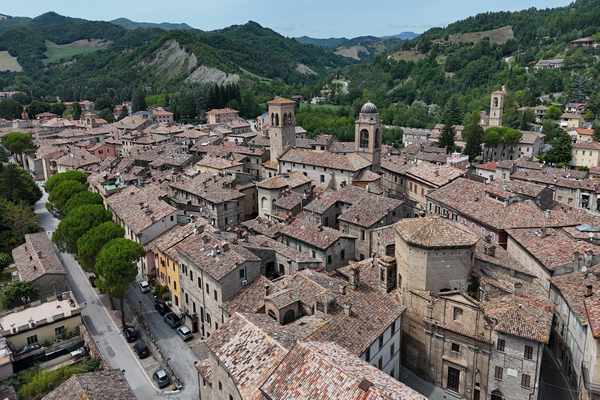
Sant'Angelo in Vado is also known as the "Capital of the precious white truffle". Every year, in the last weeks of October and the first of November, the National White Truffle Exhibition is held. (read more)
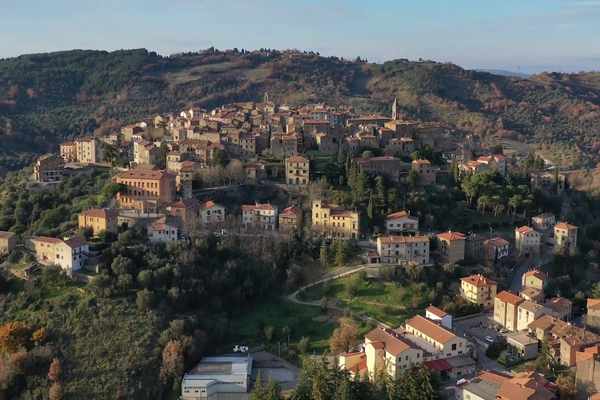
Seggiano is a charming medieval town located in the province of Grosseto, Tuscany, Italy. (read more)
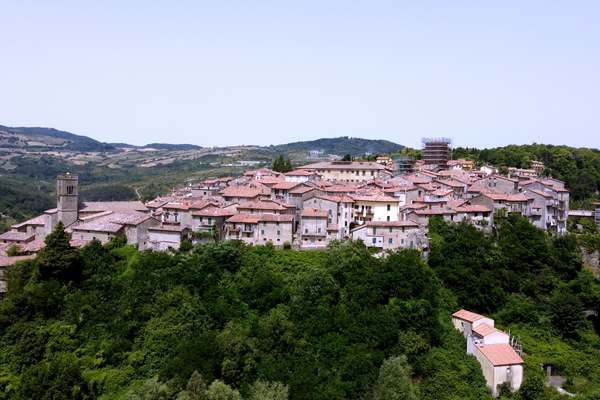
Santa Fiora is one of the "Most Beautiful Villages in Italy" and Orange Flag of the Touring Club, a true medieval jewel set on the southern slope of Monte Amiata, in the province of Grosseto, Tuscany. (read more)
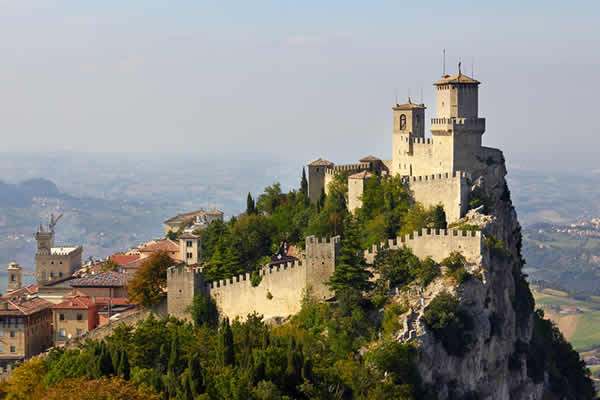
San Marino, officially the Republic of San Marino, also known as the Most Serene Republic of San Marino, is a small state in Southern Europe enclaved by Italy. Located on the northeastern side of the Apennine Mountains, San Marino covers a land area of just over 61 km2 (24 sq mi), and has a population of 33,562. (read more)
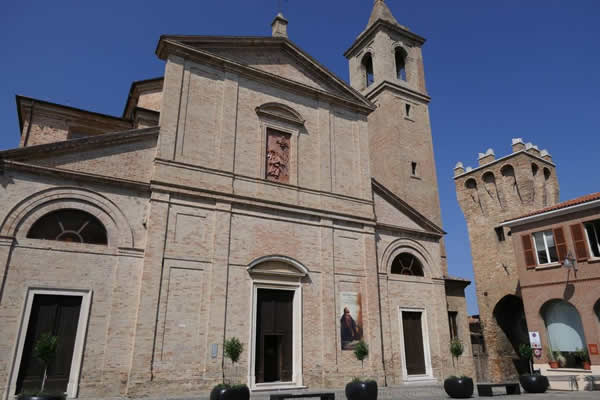
Saludecio is a charming medieval village in the province of Rimini, nestled in the rolling hills of the Conca Valley. (read more)
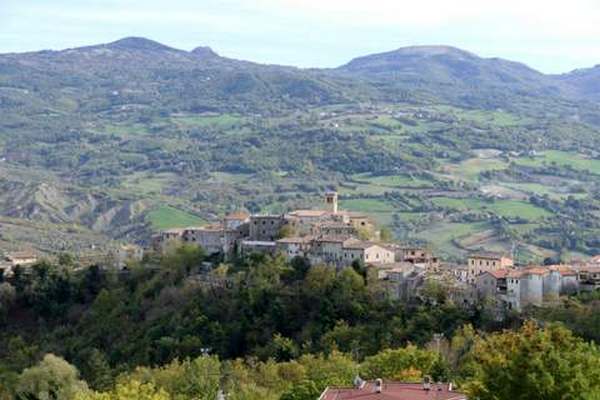
Clinging to Mount Pincio which protects it, this town is flanked by the river and by rocky crags topped by the fortresses of San Leo and Maioletto that control the valley and nearby Novafeltria, the town it gave life to about 100 years ago.The intimate old town is very inviting and offers visitors a series of attractions in close proximity to each other. All around the town there are woods with chestnut trees, pines and a lot of shrubbery which are great for taking short hikes. (read more)
